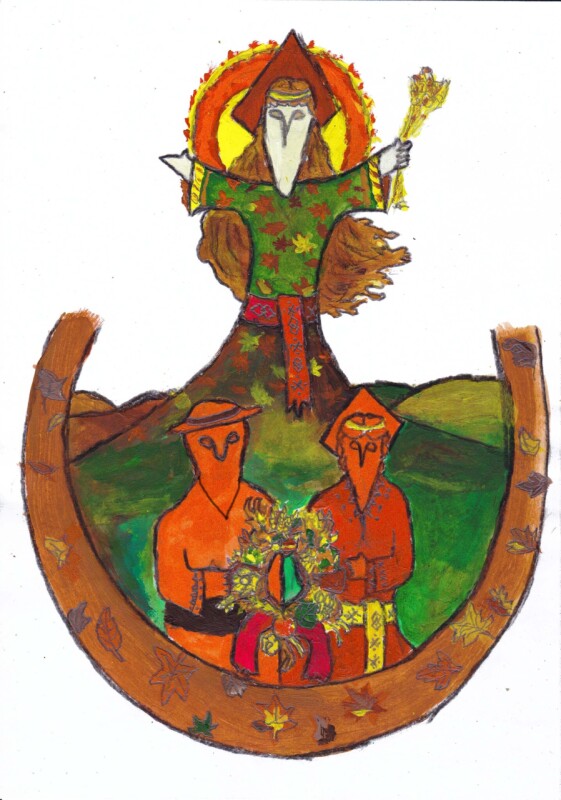Nowadays, we are not very aware of it, but just like in the past, we are dependent on agricultural crops. Our ancestors were much more connected to Mother Earth. However, this did not only concern hard work, but also the perception of natural changes in one's surroundings.
Ceremonies for the purpose of asking for or giving thanks for a good harvest were mostly, apart from religious ceremonies, accompanied by a feast, entertainment associated with singing and dancing.
The harvest festival took place after the end of the harvest, so it did not have a fixed date. At the end of the harvest, it was customary to leave in the fields a few uncut ears of ripe grain, in the old days called Velesa beard, as well as a few last sheaves.
The last sheaves, which were used to weave the harvest wreath and the harvest baby, had the same meaning.
The householder used to hang the wreath over the table or other honorable place, where it was often until Kračun or next spring.
A smaller harvest wreath was placed on the head of the reaper who led the harvest procession. This deva was usually dressed in a red dress and represented happiness, the goddess Dolia. Before the wreath was brought into the holy grove and sprinkled with water or handed over to the householder, it was passed around all the houses of the village. It was believed that the arrival of the procession led by Dolia and the harvest wreath brought happiness and prosperity to the dwellings.
With the harvest festival, the goddess Oseň, daughter of Pizmar and Striboga, also called "Autumn", takes over the scepter of nature. With her ascension to the throne, the summer period is essentially closed, the summer of grandma begins, which suddenly turns into autumn.


















